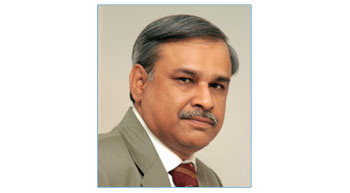The word ?smart? has suddenly shot into prominence. Everybody is talking smartly about everything that is turning ?smart?. It all started with smart phones, then spread like wildfire, to smart technology, smart grids, smart schools, smart networks, smart cards, smart buildings, smart what not…and finally settled down with ?smart cities?. And with what a bang! Not one, not two, not ten, but one hundred of them in our country of 6,38,000 villages. Among the things that we now expectantly look forward to, such as public or community toilets, high speed trains, the return of the black money, ´Digital India´, ´Make in India´ and so on, Smart Cities certainly occupy the pole position. Urban infrastructure in our country did not ever receive so much attention in our known history.
Now, from a whiff of light-hearted banter to more serious stuff. Smart cities may have been defined differently by different people, but fundamentally it should mean cities where citizens get access to improved urban infrastructure and facilities, thanks to technology and artificial intelligence. I have two takeaways from here – firstly, that ?smart cities?. means to me better cities, and if that be so, we do very much need smart cities, and we shall be more than glad to live in them; and secondly, that any significant improvement from where our cities stand today can definitely be considered as a movement towards the attribute called smartness.
Drawing an analogy from industrial projects, just as a brown field modernisation project is always more complex to execute than a greenfield one, creating a smart city out of an existing urban nightmare is much more difficult than creating a new city ground up as a smart city, assuming that the end state is identical in both cases. From this perspective, it will be phenomenally easier to build Dholera or Amaravati or GIFT as smart cities rather than miraculously converting Thane or Durgapur or Vadodara or Varanasi into smart cities. However, one thing is for certain – in this huge campaign around smart cities, new vision documents will be prepared, new assets will get built, new infrastructure will be constructed. The question is, whether at the same time, institutions such as independent and accountable City CEO´s will be created, and, if mechanisms will be put in place to ensure viable upkeep and maintenance of these new assets thus created by investing tax-payers´ money diverted from other priority sectors such as health and education. The blueprint for mere construction of an intelligent urban rapid transit system like a metro, is less critical than the financial plan for its continued viability and sustainability.
Recently, Smart Cities Council of India, an independent think-tank dedicated to the Smart Cities movement in our country, organised a very successful event in Hyderabad, the second ôSmart Cities Summitö in collaboration with the Telengana government. We do expect, that through events such as these, and other activities, the Council, the first and the only one of its kind in India, will be able to play a timely and leading role in promoting exchange of ideas and dissemination of information in this very, very modern subject of smart cities. Let us look forward to relative upgrade of all the identified cities in the direction of relative smartness.
While the national mission on smart cities will work towards improving urban infrastructure, things are happening in other infrastructure sectors as well. A noteworthy development was acquisition of six road projects by the Canadian Alternative Asset management company Brookfield Asset management, which happens to be the first FDI in this sector. Besides, our cover story in this issue, on the topic of maritime trade, explores opportunities being thrown up with the renewed focus on port-led infra development. Later this month, do watch out for our anniversary issue, which will be packed with opinions, analyses and insights from the who´s who across the spectrum of India´s infrastructure domain.



Leave a Reply
You must be logged in to post a comment.